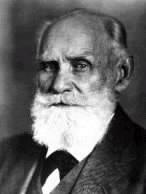History of hypnosis
 Franz Anton Mesmer was born in Vienna. Mesmer is considered the father of hypnosis. He is remembered for the term Mesmerism which described a process of inducing trance through a series of passes he made with his hands and/or magnets over people. He worked with a person's animal magnetism (psychic and electromagnetic energies). The medical community eventually discredited him despite his considerable success treating a variety of ailments. Franz Anton Mesmer was born in Vienna. Mesmer is considered the father of hypnosis. He is remembered for the term Mesmerism which described a process of inducing trance through a series of passes he made with his hands and/or magnets over people. He worked with a person's animal magnetism (psychic and electromagnetic energies). The medical community eventually discredited him despite his considerable success treating a variety of ailments.
1795-1860 James Braid, an English physician, originally opposed mesmerism (as it became to be known) but then became interested.He said that cures were not due to animal magnetism however but to suggestion.He developed the eye fixation technique (also know as Braidism) of inducing relaxation and called it hypnosis (after Hypnos, the Greek god of sleep)as he thought the phenomenon was a form of sleep. Later, realizing his error,he tried to change the name to monoeidism (meaning, influence of a singleidea) however, the original name stuck.
Jean Marie Charcot, a French neurologist, disagreed with the Nancy School of Hypnotism and contended that hypnosis was simply a manifestation of hysteria. There was bitter rivalry between Charcot and the Nancy group (Liebault and Bernheim). He revived Mesmer's theory of Animal Magnetismand identified the three stages of trance; lethargy, catalepsy and somnambulism. (Freud studied under Charcot before developing the psychoanalytical movement).
1845 - 1947 Pierre Janet was a French neurologist and psychologist who was, initially, opposed to the use of hypnosis until he discovered its relaxing effects and promotion of healing. Janet was one of the few people who continued to show an interest in hypnosis during the psychoanalyitic rage.
 1849-1936 Ivan Petrovich Pavlov - Russian physiologist who actually was more focused on the study of the digestive process. He is known primarily for his development of the concept of the conditioned reflex (or Stimulus Response Theory). In his classic experiment, he trained hungry dogs to salivate at the sound of a bell, which was previously associated with the sight of food. He was awarded the Nobel Prize for Physiology in 1904 for his work on digestive secretions. Though he had nothing to do with hypnosis his Stimulus Response Theory is a cornerstone in linking and anchoring behaviors, particularly in NLP. 1849-1936 Ivan Petrovich Pavlov - Russian physiologist who actually was more focused on the study of the digestive process. He is known primarily for his development of the concept of the conditioned reflex (or Stimulus Response Theory). In his classic experiment, he trained hungry dogs to salivate at the sound of a bell, which was previously associated with the sight of food. He was awarded the Nobel Prize for Physiology in 1904 for his work on digestive secretions. Though he had nothing to do with hypnosis his Stimulus Response Theory is a cornerstone in linking and anchoring behaviors, particularly in NLP.
1857 - 1926 Emile Coue`, a physician formulated the Laws of Suggestion. He is also known for encouraging his patients to say to themselves 20-30 times each night before going to sleep, "Everyday in every way,I am getting better and better." He also discovered that delivering positive suggestions when prescribing medication proved to be a more effective cure than prescribing medications alone. He eventually abandoned the conc ept of hypnosis in favor of just using suggestion, feeling hypnosis and the hypnotic state impaired the efficiency of the suggestion. Coue's Laws of Suggestion
1856-1939 - Sigmund Freud traveled to Nancy and studied with Liebault and Bernheim, and then did additional study with Charcot. Freud did not incorporate hypnosis in his therapeutic work however because he felt he could not hypnotize patients to a sufficient depth, felt that the cures were temporary, and that hypnosis stripped patients of their defenses. Freud was considered a poor hypnotist given his paternal. However, his clients often went into trance and he often, unknowingly performed non-verbal inductions when he would place his hand on his patient's head to signify the Doctor dominant, patient submissive roles. Because of his early dismissal of hypnosis in favor of psychoanalysis, hypnosis was almost totally ignored.
1875-1961 - Carl Jung, a student and colleague of Freud's,rejected Freud's psychoanalytical approach and developed his own interests.He developed the concept of the collective unconscious and archetypes. Though he did not actively use hypnosis he encouraged his patients to use active imagination to change old memories. He often used the concept of the innerguide, in the healing work. He believed that the inner mind could be accessed through tools like the I Ching and astrology. He was rejected by the conservative medical community as a mystic. However, many of his ideas and theories are actively embraced by healers to this day.
1936–1980 - Milton Erickson, a psychologist and psychiatrist pioneered the art of indirect suggestion in hypnosis. He is considered the father of modern hypnosis. His methods by passed the conscious mind through the use of both verbal and nonverbal pacing techniques including metaphor, confusion, and many others. He was a colorful character and has immensely influenced the practice of contemporary hypnotherapy,and its official acceptance by the AMA. His work, combined with the workof Satir and Perls, was the basis for Bandler and Grinder's Neuro-Linguistic Programming (NLP).
|